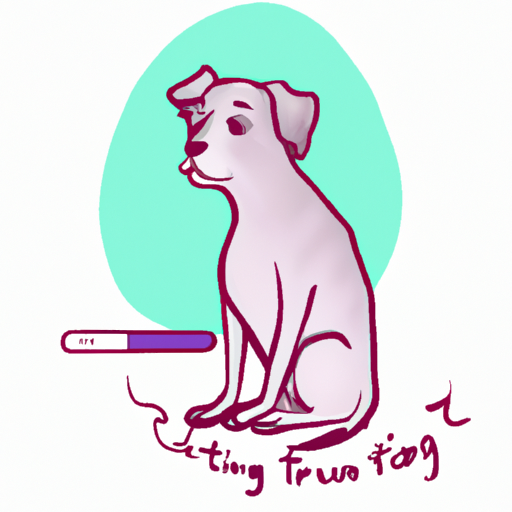1. Understanding Canine Pregnancy
Many of us, as attentive and devoted caregivers, may wonder: do our four-legged friends understand when they’re expecting? While dogs might not comprehend pregnancy in the same way humans do, they do exhibit certain changes in behavior that suggest they’re aware that something is different.
There’s a symphony of hormonal shifts that take place, guiding them towards motherhood. These changes can lead to alternations in their temperament, appetite, and energy levels.
- Temperament: A pregnant dog may become more affectionate or, conversely, more solitary.
- Appetite: As the pregnancy progresses, you may notice your dog eating more to nourish the growing puppies.
- Energy: Pregnant dogs often experience decreased energy levels and spend more time resting.
2. Recognizing the Signs
Recognizing the signs of pregnancy can help you better care for your dog during this special time. Here are some indicators to look for:
- Change in appetite
- Increased sleeping or lethargy
- Enlarged or discolored nipples
- Weight gain and distended abdomen
| Signs of Pregnancy | Explanation |
|---|---|
| Change in Appetite | Your dog may eat more or even experience morning sickness similar to humans. |
| Increased Sleeping or Lethargy | Pregnancy can be tiring, and dogs are no exception. |
| Enlarged or Discolored Nipples | Around week 3 or 4, your dog’s nipples may become larger and darker. |
| Weight Gain and Distended Abdomen | As puppies grow, your dog will naturally gain weight and her abdomen will expand. |
3. Caring for Your Pregnant Dog
As caregivers, once you suspect that your dog is pregnant, it’s important to provide the best care possible. This could mean more frequent visits to the vet, a change in diet, and plenty of rest.
4. Preparing for Puppies
As your dog’s due date approaches, she will likely start to nest. This is a primal instinct to prepare a safe place for her puppies. As her caregiver, you can help by providing a quiet, comfortable space for her to give birth and care for her puppies.
5. Welcoming the New Arrivals
Once the puppies arrive, keep a close eye on both mom and her new arrivals. Ensure they are all healthy and thriving. Remember, your dog is equipped with natural instincts to care for her puppies, but she will still need your support.
FAQ
Q1: How long is a dog’s pregnancy?
A: A dog’s pregnancy usually lasts between 58 and 68 days.
Q2: How can I tell if my dog is pregnant?
A: Some signs include appetite changes, increased sleeping, enlarged or discolored nipples, and weight gain.
Q3: How can I help my pregnant dog?
A: Regular vet visits, a balanced diet, and plenty of rest can help. As she nears her due date, provide a quiet, comfortable space for her to give birth.
Q4: What should I do once the puppies are born?
A: Monitor the puppies and the mother to ensure they are healthy. The mother will need plenty of food and water, and the puppies will need to start nursing soon after birth.
Remember, every dog is unique and may not display all these signs or behaviors. Always consult with a vet if you suspect your dog is pregnant. After all, you are the best caregiver your dog could ask for.



